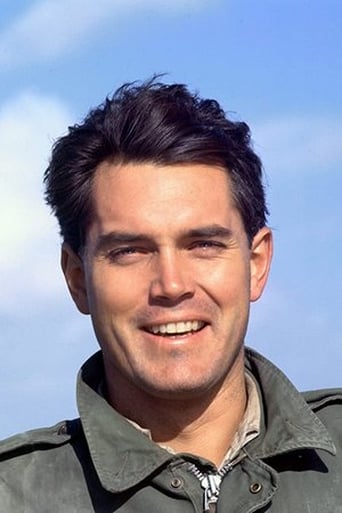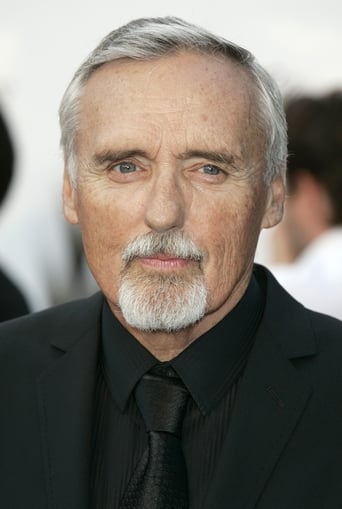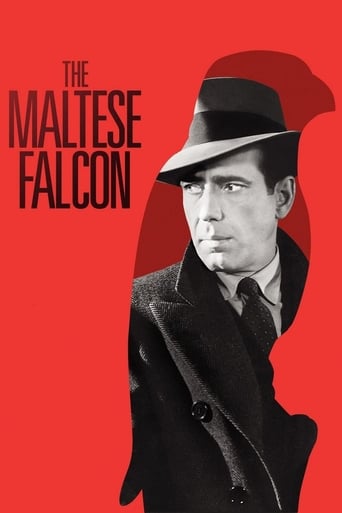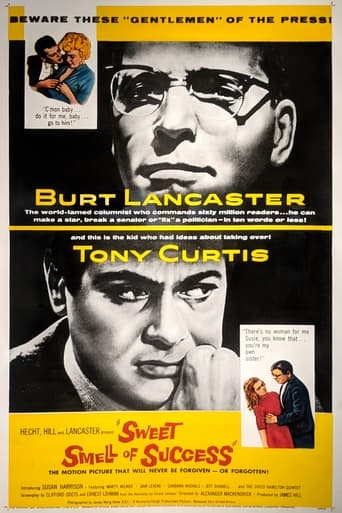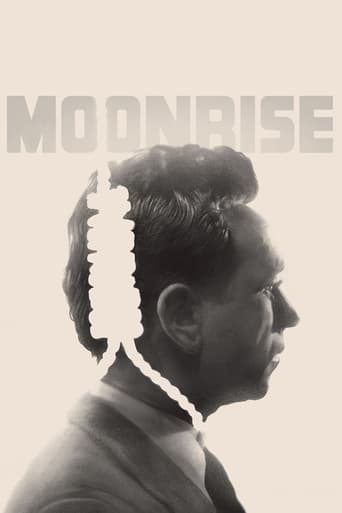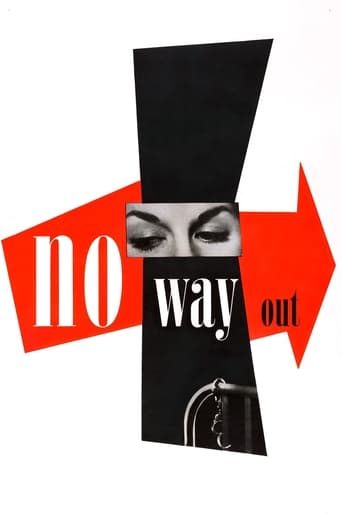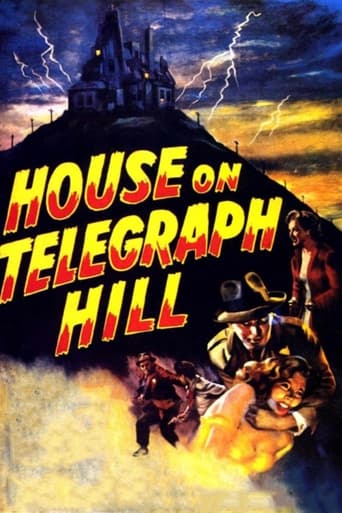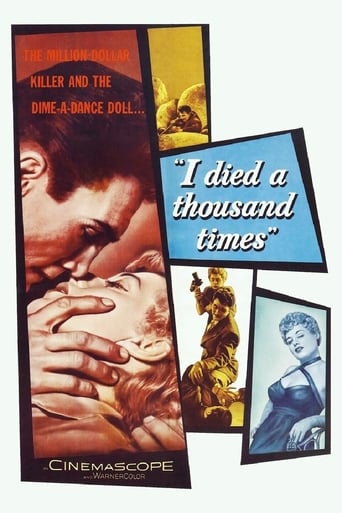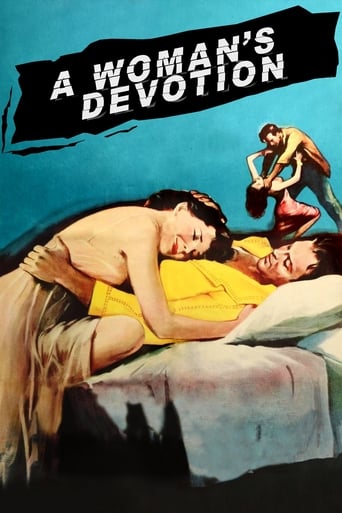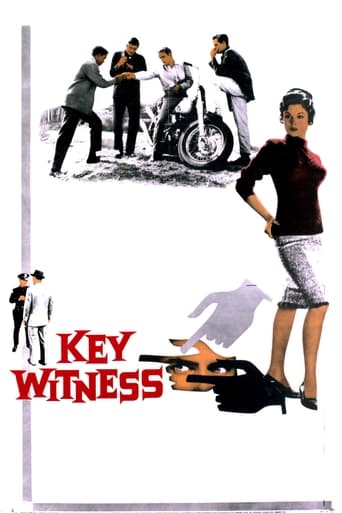
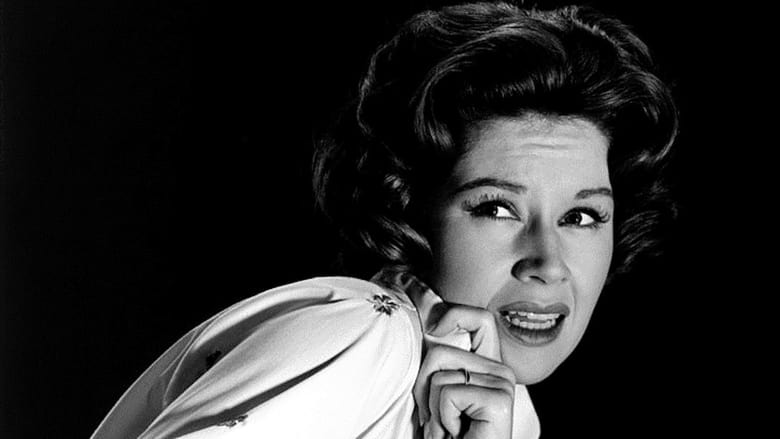
Key Witness (1960)
An average Los Angeles citizen witnesses a gang murder when he stops to use a telephone. When he presents himself to the LAPD as the only person willing to identify the culprits, he opens himself up to a campaign of intimidation from the gang involved.
Watch Trailer
Cast
Similar titles
Reviews
A Masterpiece!
A movie that not only functions as a solid scarefest but a razor-sharp satire.
True to its essence, the characters remain on the same line and manage to entertain the viewer, each highlighting their own distinctive qualities or touches.
The movie's not perfect, but it sticks the landing of its message. It was engaging - thrilling at times - and I personally thought it was a great time.
KEY WITNESS, based on Frank Kane's novel of the same name, is sort of the successor to MGM's 1955 BLACKBOARD JUNGLE, but with more acting flourishes (mostly by the supporting cast) and realistic settings. By 1960, delinquency and gang violence were recognized as an unpleasant reality outside of "old" urban centers such as New York -- but also not always (or often) involving such well-scrubbed suburbanites as those depicted in REBEL WITHOUT A CAUSE. Though its script stumbles in some notable places (a few involving basic logic -- except that this was a new world for many of the people who would have been watching in 1960), KEY WITNESS is a good depiction of the law abiding running up against the sociopathic lawless, with horrendous consequences for all concerned. The movie also plays, in somewhat naive fashion, on a racial angle in its plot and characterizations -- this is an odd touch, considering that the entire gang in Kane's book, if memory serves, was African-American. (Additionally, the book is more violent and also a lot more raunchy in terms of the Ruby character, who alludes to the idea of explaining her assault on the witness's wife because of a (rejected) lesbian overture in a courthouse ladies' room). The movie ends a little too squeaky clean and optimistically, not that differently from THE BLACKBOARD JUNGLE, but is more harrowing along the way. Along with releases such as THE SUBTERRANEANS, which was done around the same time, it was all a really interesting venture by MGM into territory far from its roots in high art and Americana, and an admission that the 1940s were long-gone. And anyone who likes the movie should check out the novel.
Even Dennis Hopper doesn't look very punkish in this lame, dated yarn. In fact, Hopper and his male co-punks look like they just left men's prayer breakfast at the local Baptist church! And "man" is indeed the operative word, since most of them appear a lot closer to thirty than eighteen. And Johnny Nash, as the "colored boy" who endures the gang's racially derogatory jibes, even acts like he'd be more at home in Sunday school--or at a high school chess club meeting. It's hard to swallow the cinematic assertion that this bunch could get involved in murder, assault, grand larceny, and conspiracy to kidnap. But, while any thuggishness of appearance is downplayed, their behavior is so over the top that it emerges as farcical. Joby Baker, as a nastily oh-so-cool hepcat, is reminiscent of Mark Rydell in the 1956 feature Crime in the Streets. (Moreover, Baker plainly states that he doesn't like girls.) The actors, however, can scarcely be blamed for this lumpy melodrama. Jeffrey Hunter and Frank Silvera deliver straight, low-key efforts, and Terry Burnham, as Hunter's little daughter, puts in a fine performance. Pat Crowley, on the other hand, could emerge only as overwrought when she is scripted to fret about unwashed dishes as her family flees for its life. Despite the movie's incongruity of characters, the plot--though utterly predictable--does move along at a steady pace. At times, though, it feels overedited, as with an apparent reluctance to deal in detail with attacks on Hunter's family. The film's value lies in its interest as an unintentional parody of Fifties depictions. As such, it is well worth a look-see.
By the late 1950s film noir was dead but the juvenile delinquent thriller, originally inspired by the novels of Hal Ellson from ten years earlier ("Duke," "The Golden Spike," etc), was thriving on the B-movie circuit. But MGM and producer Pandro Berman, perhaps hoping to repeat their 1955 success with "Blackboard Jungle," tried to blow "Key Witness" up into an A-movie, widescreen Cinemascope, "Rebel Without a Cause" alumni (Hopper, Corey Allen), and all. Though the plot relies on sometimes ridiculous turns (in one maddening scene, a deputy runs into a courtroom interrupting testimony) and the characters are mostly cartoons (Muggles certainly lives up to the first syllable in his name), director Phil Karlson's decision to shoot on the streets of Los Angeles keeps everything moderately realistic. The opening scene, set in a hilly slum neighborhood just north of City Hall in the Chinatown area (though it looks like old Bunker Hill and is referred to as "East L.A." in the film), immediately puts the viewer into the middle of the action and the period. If this film had been shot on a soundstage, as "Blackboard Jungle" was, it would have fallen apart within the first ten minutes, but once again L.A. saves the day. If you love the atmosphere of on-location films from this era, you'll enjoy the sensation of sitting through "Key Witness."
I really enjoyed this film. However, I enjoy all films of this particular genre. Black and whites film from the late 1950's/early 1960's. Plenty of hip looking individuals with snappy lingo. The detectives wear hats and the punks are bad news. It reminds me of "Blackboard Jungle" or some Stanley Kramer film.The story is about doing the right thing, even when the wrong thing is much easier to do. Moreover, you get to see a young Dennis Hopper do his early version of Frank Booth from "Blue Velvet." Good stuff in a retro kind of way.
